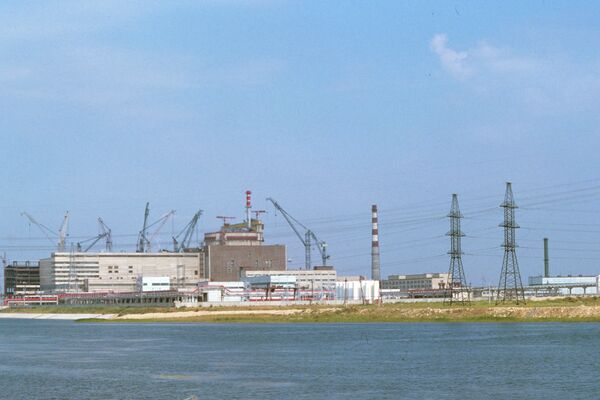Russia's state nuclear corporation Rosatom on Sunday denied claims by the British media that former Russian security officer Alexander Litvinenko was poisoned with polonium originated from Russia.
Earlier, The Sunday Times published copies of documents according to which Russian special services in London received 3.4 kilograms of polonium-210 from the Russian Balakovo Nuclear Power Plant several weeks before Litvenenko's death.
"The documents published [in The Sunday times] raise serious doubts. Firstly, Russia has not been producing polonium in such quantities for a long. The volume of polonium output in 2006 was 0.8 grams per month for delivery under a single contract with a U.S. firm," corporation's official spokesman Sergei Novikov said.
The production of polonium requires a pressure-tube reactor while "the reactors at Balakovo Nuclear Power Plant are absolutely different in design," Novikov continued.
In 2006 the polonium for the Russian-U.S. contract was produced at Avangard plant in the city of Sarov, and then processed at Mayak plant in Chelyabinsk region, he said
"There are no more polonium producers in Russia."
Rosatom's spokesman also stumbled at the authenticity of the documents published in the paper saying that the amounts of isotopes delivered under certain contracts are described in the supporting documents not in kilograms but in curies (Ci).
Relations between Russia and Britain were soured in 2006by the death of Litvinenko. In 2007, Britain accused Russian citizen Andrei Lugovoi of poisoning Litvinenko, who had received a political refuge in Britain, with radioactive polonium and requested Moscow to extradite him for prosecution.
Russia has refused to meet the request, while reiterating its demand that Britain extradite London-based Russian tycoon Boris Berezovsky, wanted in Russia on charges of fraud and plotting a coup.
Besides this, relations between Moscow and London saw a range of diplomatic scandals and spying accusations from both sides.
MOSCOW, November 21 (RIA Novosti)




